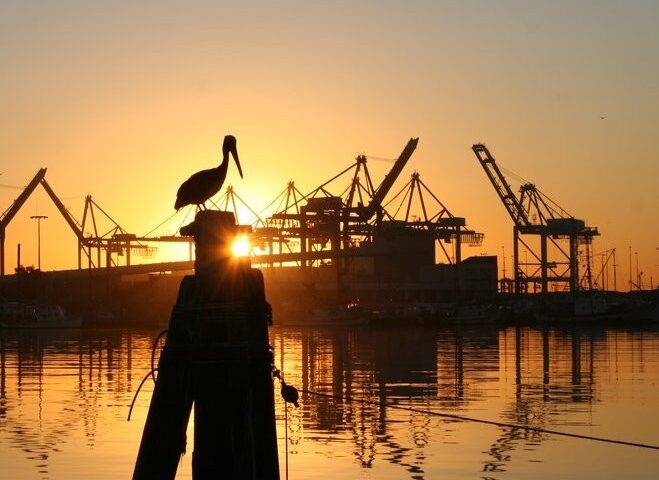Seaports are large networked infrastructures, which have considerable spatial impacts. Such infrastructures must be prepared to accommodate future developments within a context of stakeholder pressure. Similar to other large industrial operations generating substantial externalities, transport industries are large polluters.
 In 2012, it was noted that international shipping accounted for nearly 1,000 million tonnes of CO2, CH4 and N2O, an equivalent of 2,2% of global green house gas emissions. These levels are even expected to increase in the future, with estimations ranging between a 50% and 250% rise by 2050. Stakeholders with environmental claims not only consist of environmental pressure groups or local and regional governments: supply chain actors are increasingly transferring the pressure from their end customers to the various nodes of the supply chain. Ports are facing up to the environmental challenge and seek to demonstrate their environmental responsibilities as well as running a safe and successful commercial operation. The European Commission is convinced that ports are able to provide incentives to the shipping industry in its effort to improve the industry’s sustainability. An example of such an incentive is differentiated port infrastructure charging, with reference to environmental performance. Such charging schemes enable shipping lines to reduce their total port dues if the ships that call a port comply with certain conditions of environmental friendliness.
In 2012, it was noted that international shipping accounted for nearly 1,000 million tonnes of CO2, CH4 and N2O, an equivalent of 2,2% of global green house gas emissions. These levels are even expected to increase in the future, with estimations ranging between a 50% and 250% rise by 2050. Stakeholders with environmental claims not only consist of environmental pressure groups or local and regional governments: supply chain actors are increasingly transferring the pressure from their end customers to the various nodes of the supply chain. Ports are facing up to the environmental challenge and seek to demonstrate their environmental responsibilities as well as running a safe and successful commercial operation. The European Commission is convinced that ports are able to provide incentives to the shipping industry in its effort to improve the industry’s sustainability. An example of such an incentive is differentiated port infrastructure charging, with reference to environmental performance. Such charging schemes enable shipping lines to reduce their total port dues if the ships that call a port comply with certain conditions of environmental friendliness.
PortEconomics member Michael Dooms, along with Magali Geerts (Vrije Universities Brussel) and Mychal Langenus (Vrije Universiteit Brussel) discuss the way to tackle uncertainty when applying green perspectives at port infrastructure pricing in their latest port study presented in the IAME 2016 Conference held 23-26 August in Hamburg, Germany.
The paper and the presentation of the study is available and can be freely downloaded @PortEconomics.












